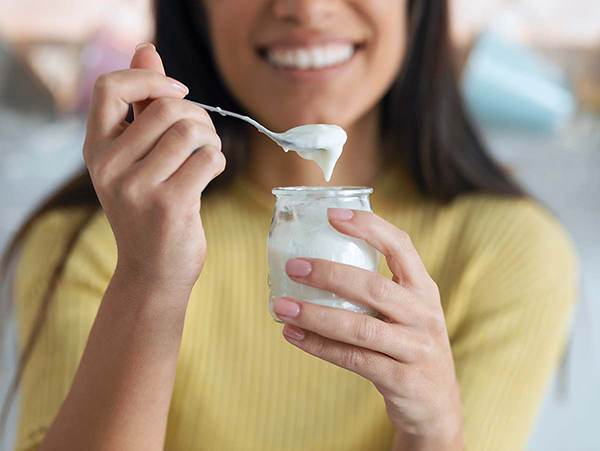Your cart is currently empty!

Psychobiotics: A Revolution in Psychiatry
by
“If microbes are controlling the brain, then microbes are controlling everything.” –John Cryan.
What are psychobiotics? Despite their somewhat sinister-sounding name, psychobiotics are probiotics and prebiotics that can lift your mood and decrease anxiety.
The word was coined by Psychiatrist and researcher Dr. Ted Dinan and colleague John Cryan, Chair of Anatomy and Neuroscience at University College Cork, in Ireland. These prolific investigators have pioneered research into psychobiotics.
There are many reasons for people to feel depressed or anxious. Bereavement, for one, often leads people into depression. That is normal and expected, as long as it doesn’t linger too long.
There are many treatments for people with depression, including psychoactive drugs that attempt to rebalance the neurotransmitters used by brain cells to communicate with each other. These drugs tend to target dopamine and serotonin centers of the brain—areas involved in happiness and motivation. There is also cognitive behavioral therapy, which has had a great track record for many people.
But there is a growing appreciation for the damage that can result from a “leaky gut”, a phenomenon that allows toxins and bacteria to enter the bloodstream. Once that happens, the heart diligently pumps these pathogens to every organ in the body, including the brain.
There is a barricade, called the blood-brain barrier, that keeps pathogens out of the brain, but we now have evidence that this barrier can be breached, creating a “leaky brain” analogous to the leaky gut.
In extreme cases, this leads to brain inflammation that can deeply disturb the affected person, causing anxiety, confusion, hallucinations and sharp personality changes.
But inflammation can also lead to garden-variety depression and anxiety. It is not a small problem.
Shockingly, some 75% of people with gut issues also have depression. It looks similar to “ordinary” depression, but the cause lies in the gut, not the brain. This is the gut-brain axis, which initially popped out of the first germ-free mouse experiments by Nobuyuki Sudo in 2004.
Germ-free mice changed everything
Sudo found that mice born and raised with no bacteria behaved differently than normally germy mice. It was a stunningly simple, but powerful, observation.
At that time, scientists were just beginning to realize that gut bacteria were, for the most part, beneficial to us. That was a huge break from the “kill all germs” philosophy. But just what those microbes were doing in our gut was a big mystery.
Germ-free mice presented a golden opportunity to investigate.
When Sudo realized that germ-free mice had a different reaction to stress, it was confounding. How in the world could bacteria affect behavior?
Since then, researchers have shown that this is not just happenstance or a mere association. The relationship is causal.
An astounding series of experiments have shown that you can transmit depression by transferring microbes. Most of these studies use fecal transfers, and some have gone from humans to mice, thus demonstrating cross-species causality.
In general, feces from depressed animals will make the recipient depressed as well. From a psychiatric point of view, that is truly revolutionary. Poop as therapy?
Can we control our microbes to improve our mood?
The research so far has indicated that healing a leaky gut can go a long way toward improving mood.
The best way to do that is to support psychobiotics such as Bifidobacteria longum and Lactobacillus rhamnosus that nourish the gut lining. How do you support them? That turns out to be fairly easy: increase your consumption of fiber and ferments.
Fiber refers to chains of sugar molecules that our body can’t break down, but our microbes can. Properly fed, these beneficial microbes produce substances like butyrate that are excellent gut balms.
Fiber is found in veggies and fruit, two food categories that have dropped precipitously from western diets. Vegetables like artichokes, asparagus, onions, garlic, and beans are full of fiber. So are fruits like berries.
An important source of psychobiotics is fermented food like sauerkraut, pickles and yogurt. If you can’t get enough fiber in your diet, you might want to consider supplements.

Boost mood and cognition by optimizing your gut health via the gut-brain axis. Vegan, soy-free, gluten-free, non-GMO.
Refined sugar and junk food, on the other hand, support pathogenic microbes that may lead to leakiness.
The unexpected impact of diet on our mental state is important, because we have control over it. The microbes in your gut can be modified by diet, exercise and supplements.
The main way to settle your gut is to improve diversity, so that no single microbial species can dominate.
The bottom line
Not all psychological problems start in the gut, and some amount of depression and anxiety is normal and healthy.
For those with long-term depression, antidepressants are still popular and effective tools. Still, as Dr. Dinan has found with many of his patients, a psychobiotic alternative has great promise and fewer side effects.
The beauty of this finding is that you can try fiber or ferments yourself with a trip to the grocery store.
Psychobiotics are complex, involving all bodily systems, and everyone is different due to unique genes, environments, diets and antibiotic history. So pay attention to your psychobiotic adventures and take notes about what works for you.
If you are already being treated by a psychiatrist, make sure to talk to them about diet changes. But even if you are already on a drug regimen, keeping your gut in good shape will never hurt.
For psychiatrists, the lesson of psychobiotics is that it might be wise to check on your patient’s gut as well as their mind.
As strange as it seems, microbes affect your mood, and simply eating better could change your life.

Leave a Reply
You must be logged in to post a comment.